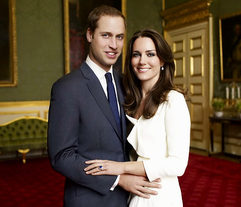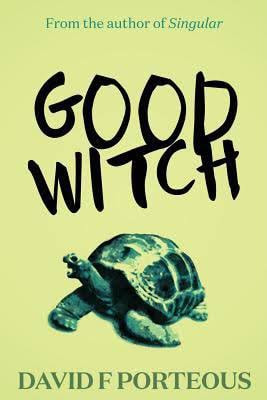dfpiii.com |
The website of David F Porteous |
 “What you should do is get a picture of a celebrity reading a book and photoshop the cover of your book onto it,” says M. “Then sell it to Heat or Hello”. “Most of your ideas seem to involve lying,” I observe. “And being sued,” adds L, whose voice is on the far, dark side of sultry. She has already confessed her concern that this sore throat may prove fatal. We have gone to lunch like a rudderless ship leaves port. Instead of our original destination we’ve been blown into the Scottish Storytelling Centre Cafe, on Edinburgh’s Royal Mile. The girls were enthusiastic. I’ve never been before. It’s nice. There’s a lot of stylishly misshaped wooden furniture and it feels like an affluent community centre rather than a tourist spot. (Though this is March; in July it’s probably different). I’m having one of the specials; salmon fishcakes. I enjoy them because they’re delicious and have been served with a simple but perfectly judged salad. I do not know what future me knows; that they, like all salmon-based foods before them, will repeat on me well into the evening. “What about libraries?” “You can actually go into a library right now and order my book,” I say. And I’m pretty sure that’s true – though I haven’t tried. “Do that then,” M says. “Go into every library and request a copy of your book”. “That doesn’t seem like a scalable strategy,” I say, increasingly worried that the launch of my book is turning into a caper or an Ealing comedy. To be fair to M, it’s not that her suggestions are crazy; it’s that they are shameless and I am not. My comfort zone quivers and shrinks just thinking about them. We’ve gathered to talk through different approaches to the marketing and communications strategy for my novel, Singular. Released only the day before in print and a few days before that in Kindle, so far the Times has not asked me for an interview: I have not been booked to appear on the morning shows: the Booker Prize people have left that path to my door entirely unbeaten. “Do you know how many people there are trying to do the same thing?” asks L, clearing some phlegm. She means trying to successfully self-publish a first novel. I don’t believe anyone knows exactly what that figure is. But for every book that gets published there must be a hundred manuscripts chasing a deal. “Loads,” I say. And, with the in-person charm that is so difficult to capture in writing, I add, “There must be thousands of crazies pushing their stuff”. Even I have to remind myself that this is actually part of a long term plan and that self-publishing is not a form of delusion. Singular was knocked back by one agent – it was an experience I found so distasteful that I vowed not to fall into the leg-hold trap of posting my manuscript out, waiting hopefully for two months and then being rejected. Once was enough. Repeating the process seems like something that could be categorised as “cruel and unusual”. Publishing has always seemed to me, as an outsider, like Guantanamo Bay with reading glasses: a gritty prison drama where the writer is the guy with delicate features who you know faces brutal sexual assault sooner rather than later. (I wish I could tell you that Stephen King fought the good fight...) Instead, I decided that I would put the book out there myself – with a little help from the self-publishing arm of Amazon. I get people to read the book, I get feedback, I get to pick up women by telling them I’m a writer. (By the way, that doesn’t work any better than the line “I’m a stand-up comic” – but at least nobody challenges you to write them some prose on the spot or make them think about the human condition in a new way). A year down the road – and this is where it all becomes a bit dream-like and hazy – I walk into the offices of Hodder and Stoughton and reluctantly agree to accept a generous three book deal. There is champagne and confetti. Someone asks me to sign their baby. Peace is declared across Europe. And so on. The thing is; I genuinely believe this is a good idea. Ten years from now a writer’s first work being self-published will be the norm. In fact as big companies continue to push holiday reading and books about topless boys who are also vampires, and self-publishing channels become more accepted, it’s likely that most literary and genre fiction will never be published in the traditional sense. And all this will probably happen in ways nobody expects – the same way everything else did. “I don’t really like science fiction,” says L, one of my trusted readers of an early draft. “Like, at all”. “It’s not really science fiction,” I say. “I mean there aren’t any spaceships in it”. “But the things in it could never happen”. (Only the day before she’d told me she believes in ghosts). “Well-” I say, and put my ducks in a row for a lengthy explanation of why it jolly well could. “It’s not news,” M says, voicing her own thoughts and elucidating the problem of why the local paper, the Edinburgh Evening News, wouldn’t be much help. “Did you hear about that girl who made the royal wedding sick bags? She got a load of publicity. It was interesting, it was cheeky. It’s the kind of thing you’d get shot for in another country”. I had already begun to suspect my choice of a front cover depicting the isolated nature of self and the unknowable consequences of all decisions was a mistake. What I should have gone for was Prince William and Kate Middleton superimposed on the union flag. Commemorative editions: manufactured nostalgia: kitsch; that’s where the Daily Mail reading British public are at. She wasn't wrong. “I wish someone would just send me a message,” L says, perfectly summing-up the conversation. “Okay,” says M. “One last idea...”
1 Comment
|



